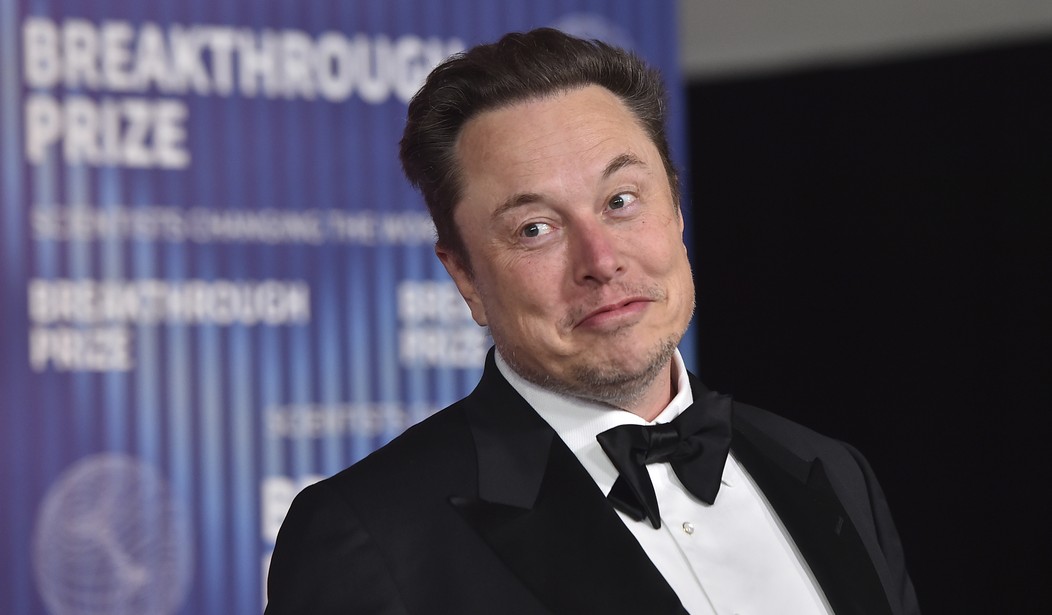Elon Musk is clearly a different breed of cat, but not enough people appreciate how utterly preposterous his life actually is. He’s not just marching to the beat of a different drummer; he’s breakdancing to the beat of his own turntable.
Imagine Facebook’s Mark Zuckerberg moonlighting as the CEO of General Motors, while also running Boeing. Impossible, right? It’s beyond mindboggling! But via running Twitter (X), Tesla, and SpaceX — multibillion-dollar corporate conglomerates each — that’s essentially what Musk is doing. (And when he wasn’t doing that, a few years earlier he cofounded OpenAI, the world’s most influential artificial intelligence company.)
If Elon Musk didn’t exist and a writer invented him for a screenplay, the audience would reject it: Too farfetched. Would never happen in real life.
And by the way, among the (many) things I’ve overlooked — i.e. developing Neuralink, launching global Internet access with Starlink, revolutionizing digital sales with X.com/PayPal, the Boring Company — each would easily qualify as a career-defining magnus opus for anyone else. But with Musk, they’re kind of superfluous.
When you’re the man who invented today’s electrical car industry AND privatized space travel, it makes the impossible look mundane.
But his riskiest business endeavor is the one he’s taking now: Elon Musk, champion of free speech.
Risking billions to protect an audience that isn’t his.
Estimates vary and markets fluctuate, but roughly speaking, 75 percent of Elon Musk’s wealth is tied to Tesla. And Tesla, of course, is an electric car company.
According to Gallup, 71 percent of Republicans would not consider owning an electric vehicle.
Eighty-three percent of Democrats would consider owning an electric vehicle.
You don’t need to be a statistician to recognize which audience matters most to Tesla’s core business model.
Among Americans adults, Republicans (at 63 percent) and white men (at 51 percent) now have the highest favorable opinions of Musk. But only 9 percent of Democrats feel the same way.
Ouch!
It wasn’t always like this: Until relatively recently, Musk was beloved by the left. He guest-starred on “The Simpsons” (collaborating with Homer), he mingled with Tony Stark in “Iron Man 2,” and he was the Patron Saint of environmentalists everywhere.
Then he started talking about social issues and tweeting about politics. Shortly thereafter, he bought Twitter for $44 billion.
Before Musk bought Twitter, 47 percent of Democrats believed Twitter was good for American democracy. Afterwards, that number dropped to 24 percent. (Wonder why?) The number of Democrats who complained about Twitter containing inaccurate or misleading information jumped from 54 percent to 68 percent. Whereas just 29 percent of Republicans said harassment and abuse was a “major problem” on Twitter, a whopping 65 percent of Democrats now disagree with them.
New polling hasn’t been recorded since Musk endorsed Donald Trump and hosted a “conversation” with him on Twitter, but it’s safe to assume that it probably didn’t increase his fandom on the left.
In all probability, his numbers have plunged significantly further. I’m talking subterranean.
At first blush, Musk seems to be an odd candidate for the Democrats' vitriol: In addition to his environmental bona fides, he’s never once claimed to be a conservative! He describes himself as “politically moderate,” and he voted for Barack Obama in 2008 and 2012, Hillary Clinton in 2016, and Joe Biden in 2020. That’s not exactly Pat Buchanan 2: The Electric Boogaloo.
But right now, Elon Musk is up there with Donald Trump, Tucker Carlson, and Jordan Peterson: They’re the current Mount Rushmore of Men who Terrify the Crap Out of Left.
Yet these are the same people that Musk needs to buy electric cars.
It’s easy to be jaded and cynical. We’re so used to being disappointed by our heroes, cynicism has almost become our default-setting. But what Elon Musk is doing today is truly the most astonishing “Profiles in Courage” in American business history: The world’s richest man is jeopardizing the source of his wealth to protect the free speech of an audience that despises him.
For all the performative Kabuki theater that the ACLU likes to do with their selective support for Klan marches, Musk has done more to advance the principle of free speech than everything the ACLU’s done this century: When the public square of political discourse was being censored by the Tech Oligarchs, the ACLU was silent. When COVID restrictions stopped Americans from exercising their freedom of expression, freedom of assembly, and freedom of association, the ACLU hid under its desk. And when the government squashed freedom of the press to prevent “misinformation” about COVID and/or the president’s white-nosed kid, the ACLU was nowhere to be found.
In each of these examples, Elon Musk took concrete actions to protect our freedoms.
Even if it hurt him financially. (And it certainly did.)
Tesla, SpaceX, Twitter, Neuralink: A man life Musk is rare enough. But a man willing to risk it all for a moral principle is rarer still. And when this principle benefits an audience that isn’t his, you’re talking one in trillions.
Perhaps the most remarkable aspect about the world’s wealthiest businessman has nothing to do with his businesses at all.










Join the conversation as a VIP Member